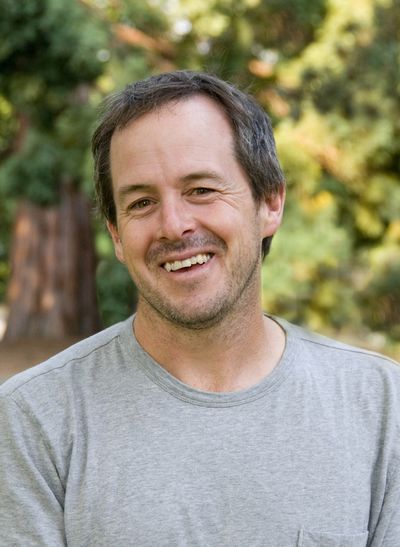Book Notes: Book launch trumpets Marshall’s ‘Bugle’

Tod Marshall is the first to admit that the poems contained in his latest collection, “Bugle,” are a little dark.
A little?
Poetry fans and others will get to hear some of those works Tuesday when Marshall celebrates the book’s release with a Boogie Woogie Book Launch at the Bartlett. The event also will feature Nance Van Winckel reading from her “scrapbook novel” called “Ever Yrs,” David Armstrong and his story collection “Going Anywhere,” and the poets of the “Railtown Almanac.”
Marshall is a Gonzaga University professor who also organizes the school’s terrific visiting writers series. He’s plumbing some depth with the new collection, his third. In a Five Questions With interview, we talk about those depths, his inspiration and what’s next.
Q. So when “Bugle” landed on my desk, I randomly opened it and read this line: “Looking for something to do, Josh lit his baby sister on fire.” This is not happy poetry. What inspired the words in these pages?
A. My first book, “Dare Say,” ends with the line “we shine, we love, we light.” I still believe that ecstatic mantra; I still adhere to the Whitmanic notion that we all carry around sparks of goodness and Godliness. Really. Intellectually, I know that belief might be an absolute fiction, but I so want to believe it that I do. And then I read or literally see the news, and the news tells me of a son who kills his mother and rapes her corpse or shows me desperate fanatics slowly slicing the throats of captives with long slim knives. The world inundates me with examples of the powerful (police and politicians and plutocrats) abusing the weak and marginalized again and again and again. How can one reconcile belief with actualities? I don’t know the answer to that question, but I know that my understanding of art is that it should rouse us from complacency in the midst of such duality; if we become accepting of the horror, then we are not feeling that horror. “Happy” poems give no solace, no shelter, nothing but fodder for greeting cards in a world where people prefer various narcotic hazes to the brutalities around them. One of the reasons for the caustic tonality of this book is driven by the attempt to bugle blast a reader to wakefulness. Reveille.
Q. This is your third collection of poetry. When making a collection, do you decide on a theme or a tone, or do you craft the work individually, then pick the ones that seem to hang best together?
A. How the book works as a book is of utmost importance to me; in fact, the coherence of my books consumes me in as obsessive a manner as the trance of writing individual poems. I had the good fortune of working with a great editor on “Bugle” – Robyn Schiff, a stunning and original poet. She trimmed many poems from the collection, challenged me to rewrite weaker poems, and helped shaped the order of the book. From the first reveille to the final bugle call, the collection blends motifs and images, sounds and re-sounds notes and riffs in order to create a deliberate texture: mining and its toxic slag (digging into the earth, memory, “data,” history, and the leftover debris of such excursions). The holes from and in all of these excavations. Art as extractive act that scrapes the self and the world. Besides Schiff’s editing skill, other co-conspirators include Dante, “The Dukes of Hazzard,” Blake, Rimbaud, the sonnet, rhubarb, Berryman, and The Starland Vocal Band.
Q. Do you have a favorite poem here?
A. I love brief poems. I think that they are much harder to write well than longer poems. I guess if I were forced to pick one, I might choose the first “Extraction” poem:
Rhubarb shoots
spiking from the muddy yard
like bloody broken bones,
like bad teeth. The leaves
grow wide and poisonous.
The sour stalks
burn calories to digest.
Eat only them, and you will starve.
What can we live on? What is poisonous? What do appearances tell us? What needs pulling out, what should be left alone?
Q. Four poems are named “Bugle.” What’s the thread that connects them?
A. Bugles announce, direct, and rouse. They awake and demand attention. The history of the horn is utilitarian before it’s musical – the warning call, the call to the hunt. The bugle also has a rich literary presence: We find them in Joshua, Dante, Rabelais, Whitman, and Tennyson, to name just a few examples. And in those poets, the bugle brings down walls, blasts heroic farts, announces conflict and battle. I hope that my bugle poems function similarly – gadfly music, sometimes harsh, sometimes satirical, always aimed at opening eyes.
Q. What’s next for you?
A. I’m trying to break out of the impulse toward writing sonnets; writing so many sonnets brought this about; it seems like just about every new draft tends toward that symmetrical pattern. So, formally I’m interested in exploring longer lines and different dynamics of shapeliness. And happy poems. I’d love to write some happy poems. I wish that I’d write some happy poems. But I probably won’t.